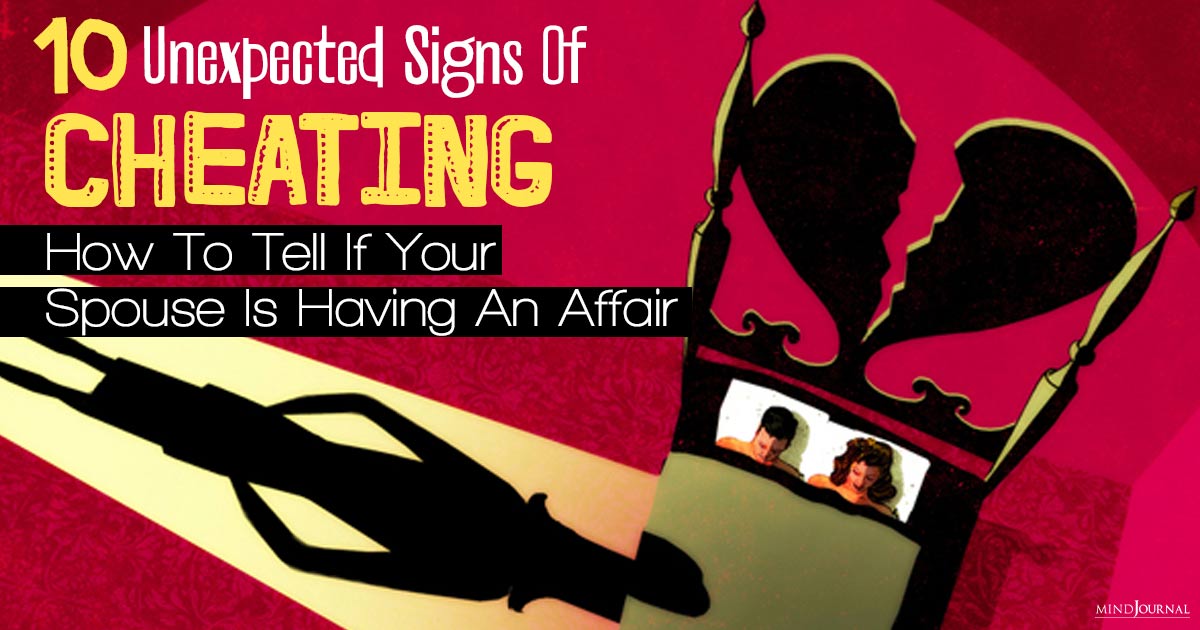Did you know that only 5 to 7% of affairs result in marriage? Why affairs don’t last? Let’s examine why most of these relationships tend to fall apart and what lessons we can get from them!
While we can think of cases where affairs have eventually turned into healthy marriages—Duke of Windsor who abdicated the British throne and Frank Lloyd Wright, the famous American architect, each who seemed to have finally found their soulmates—most of us mere mortals don’t fare so well.
Look up the length of affairs on Google and apart from one-or-two-night stands, the consensus is that most run their course in six months to two years.
Why Affairs Don’t Last: 6 Reasons Why Affairs Never Work Out
Why do affairs end? Here are some of the psychological underpinnings of affairs that sabotage their ability to become more than short or long exercises in acting out:

1. The ‘affairing’ couple is united around shared misery and excitement.
Just as Romeo and Juliet were in part pushed together by being united against their feuding families, what often brings the “affairing” couple together is their shared unhappiness in their partners: This new person understands how I feel (as compared to my partner who doesn’t).
And like Romeo and Juliet, the beginning of the relationship brings excitement—of getting to know and feeling appreciated by a new person, of sharing your story to an interested listener, the excitement of breaking out—of the boxed-in life—of breaking rules, the excitement of new flesh and sex.
But eventually, all this fades—the talk of misery gets old or dies down, the breaking out turns into being broken out, the backstory is told, and the flesh is no longer new.
The relationship settles, and when it does, other aspects of each other’s personality, unnoticed before, rise to the surface. What each finds is another variation of what they don’t like in their partners.
Related: From Fantasy To Reality: The Bitter Truth About Affairs
2. Those involved in the affair really don’t know each other.
Not only do their shared misery and excitement blind them to seeing each other more completely, but so do their needs and frustrations with their partners.
The new person is less a real person and more an ‘un-person’—the seeming opposite of the partner. Where he was dramatic, this new person is steady; where she was steady, this person is spontaneous and fun-loving; where he was critical, this person is so approving and gracious.
Yes, the new person may be like this, but these qualities are only, and unnaturally amplified by their contrast to the partner. The complex self is reduced to a simpler, one-dimensional one.
3. Everyone is on their best behavior.
Dating is different from living with someone. The rubbing of lives and the grind of daily routines creates stress, boredom, and a host of normal reactions that couples who see each other for limited amounts of time don’t experience because behaviors are held in check—I don’t want to spoil this time by talking about __.
The results are that not only are they not really getting to know each other, but normal problems and resentments are swept under the rug, are not resolved, and so only build up over time, usually leading to seemingly out-of-the-blue explosive situations.
4. Oxytocin eventually drops.
Oxytocin, the “love” hormone that bonds people together, ramps up the sex, which creates that falling-in-love feeling naturally begins to wane after about nine to 18 months.
This is built into evolution, the need for both parties to stop staring into each other’s eyes and get back to work. When this happens, sex drops off, and the passion and glow begin to fade. This is especially derailing for affairs initially built on physical chemistry.
Related: 10 Cheating Myths You Need To Stop Believing
5. Messiness and misery eventually take over.
While some couples and cultures tolerate extramarital affairs, turning an affair into a more permanent relationship eventually turns into a mess for most on a lot of levels.
There are children involved or money; there can be contentious legal action that is geared towards emphasizing the worst in all parties. And with this comes stress, guilt, and depression.
6. The same coping styles are still in place.
At some basic level, having an affair is about cutting and running. Yes, some folks feel the affair is only arising because they have exhausted their efforts to improve their partner relationship and it hasn’t worked; they’ve given up, and in some ways mentally moved on.
But for many others, it is the opposite – they have been unhappy but haven’t truly worked on the partner relationship and problems, and their overall coping style, especially in potentially conflictual situations, is to avoid.
These coping styles don’t change in the affair. When the going gets tough in the affair, they cut and run again, suddenly ending it or moving on to someone new and so the cycle continues.
Lessons to learn
All this said (and morality aside for a moment) the ending of affairs can leave behind some useful lessons that the individuals can choose to carry forward into their view of themselves and their partnered relationship.
For some, it is the ability to see themselves in a new light, one that is less downtrodden, more attractive, and capable than they saw themselves before. This can be affirming, increase their self-esteem, and embolden them to not continue to take what they get, but instead be more assertive and decisive.
For those who were sitting on the fence about divorce, the affair offered a training-wheel relationship that gave them the confidence that they could survive post-divorce, gave them the courage to do what they, in their hearts, have wanted to do for a long time.
Finally, while affairs can be seen as bad solutions to other problems, embedded within them was often the opportunity to understand more clearly what one needed and wasn’t getting, what was missing most in the partnered relationship.
This information is invaluable and can be folded back into the partnered relationship, and into future relationships, making them all the stronger.
Written By Robert Taibbi
Originally Appeared In Psychology Today
If you want to know more about why affairs never last, then check out this video:
Why affairs don’t last? Share your thoughts and experience in the comments below!













Leave a Reply